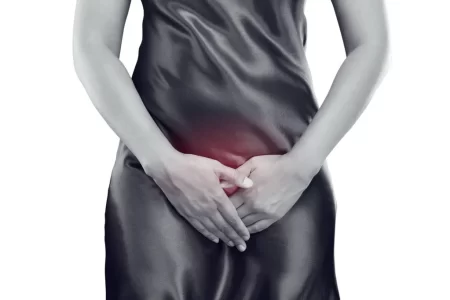 The bladder is a muscular organ that resembles a bag in shape. It can constrict when it is at rest and dilate when urine produced by the kidneys enters it.
The bladder is a muscular organ that resembles a bag in shape. It can constrict when it is at rest and dilate when urine produced by the kidneys enters it.
Bladder cancer occurs when cancer cells begin to multiply on the inner membrane of this organ, the rapid growth of which leads to the formation of malignant tumors.
Most often, bladder cancer originates in the urothelium, the inner lining of the organ.
Tragic consequences can be avoided thanks to the timely diagnosis of cancer. If you do not consult a specialist, the disease can spread to the rest of the bladder and tissue of other internal organs.
The main problem in diagnosing bladder cancer is that at the initial stage, the symptoms of this terrible disease can be confused with the manifestations of other disorders.
That is why it is necessary to visit a doctor regularly. So that a specialist can monitor changes in the body, make a correct diagnosis, and prescribe effective treatment.
1. Blood in the urine
The presence of blood in the urine is one of the most common symptoms of early-stage bladder cancer:
- The amount of blood can be different every time, but, as a rule, when a malignant tumor develops in the bladder, a person periodically notices blood in the urine.
- In some patients, the urine is colored pale pink or reddish.
- These unpleasant symptoms may not stop for several weeks, but may appear and disappear suddenly.
- In some cases, the color of the urine of a patient with bladder cancer appears to be normal. However, during additional tests, doctors detect small blood remains.
- If the disease is not treated, the bloody discharge will continue to appear in the urine periodically.
2. Change of urination
This problem cannot be ignored either, because changes in urination indicate an inflammatory process in the body and can be one of the main symptoms of bladder cancer.
A sudden change in urination can indicate the initial stage of cancer, so when this unpleasant symptom appears, be sure to see a doctor for a diagnosis.
You need to seek the help of a specialist if you notice the following changes:
- Constant urge, even when the bladder is empty.
- A slow and weak stream of urine.
- Frequent urge to the toilet at night.
- Burning sensation during urination.
3. Pain in the lower back (only on one side)
Lower back pain can be caused by a variety of factors, including urinary tract infections, kidney stones, and of course, bladder cancer.
We often ignore back pain, considering the causes of its appearance to be banal overwork and muscle tension. However, regular and intense pain on one side of the lower back should alert you.
If the pain does not subside and is accompanied by changes in urine, we advise you to immediately consult a specialist.
4. Loss of appetite
There can be many reasons for rapid loss of appetite. However, one of the adverse factors affecting appetite is bladder cancer.
Patients with a malignant tumor in the bladder suffer from a constant feeling of heaviness in the body, due to which a person loses the desire to eat.
5. Rapid weight loss
Loss of appetite and stress due to the diagnosis of a malignant tumor can cause rapid weight loss to a critical point.
A deficiency of vitamins and nutrients in the body can negatively affect the work of all internal organs. Since the human immune system is weakened, the risk of developing cancer cells increases.
6. Inflammatory process
Fluid retention or the formation of edema are signs of an inflammatory process that occurs in the body when healthy organs are damaged by cancer cells.
In patients with bladder cancer, edema most often appears in the lower part of the body, in particular on the legs and in the abdomen, because the bladder loses its ability to remove excess fluid from the body.
7. Constant fatigue and anemia
Since patients with bladder cancer complain of a sudden loss of appetite, they may develop anemia, which causes a constant feeling of fatigue.
When the body does not receive the proper amount of nutrients, it stops producing the necessary amount of blood cells. In addition, the process of oxygen delivery to the cells of all internal organs becomes difficult, due to which a person feels mental and physical exhaustion in the body.
Of course, the symptoms we listed above can be evidence of minor disorders. However, if one or more signs of the disease appear, we advise you to contact a specialist who will be able to establish the correct diagnosis and, if necessary, prescribe treatment. Remember that it is always better to prevent a disease than to cure it.
As with other cancers, timely diagnosis of the disease is the key to recovery. Be careful and don’t forget to take care of your health!
Picture Credit: VistaCreate